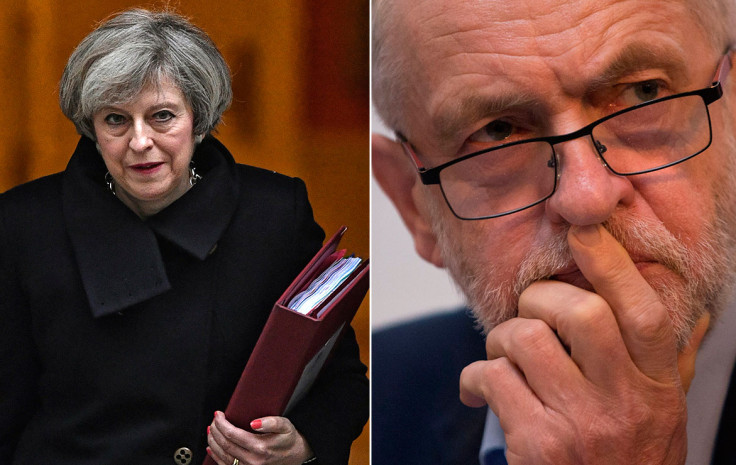What happens now there's a hung parliament in the UK general election?
Talks will be starting immediately to help form the next government after the 2017 general election.
The UK has woken to a hung parliament with no one party taking an overall majority, which means several different things could happen.
Firstly, the government is still in place, Theresa May is still the prime minister, Philip Hammond is still chancellor, Amber Rudd is home secretary etc.
The question is: who will form the next government?
Conservative-DUP combination
As the largest party, the Conservatives will be looking for support to form a working majority.
The only party that will realistically team up with the Tories is the Democratic Unionist Party (DUP), which often votes along Tory lines and also supports Brexit.
The DUP managed to improve its 2015 showing to take 10 seats in total in Northern Ireland, which could be vital to get a government rolling and its Queen's Speech approved.
This most likely would be a partnership on a vote-by-vote basis rather than a formal coalition of any kind.
A Conservative-DUP combination is the most likely scenario that could take place, and the big question remains over who would steer the ship.
Newly re-elected Tory MP Anna Soubry said that the campaign was "dreadful" and that Theresa May would have to "consider her position."
May has yet to confirm if she will stay on as prime minister, simply stating at her local count in Maidenhead that the country required a period of "stability". But how long she will stay in Number 10 is unknown.
A 'progressive alliance'
Although the Tory-DUP partnership is the most likely scenario to take place, there is the alternative option of a "progressive alliance" formed of the opposition parties.
Labour, the Liberal Democrats, SNP and the single Green MP could unite, but they would still be shy of the majority of 326.
The Lib Dem leader Tim Farron has already stated however that any such deal would not take place, and with 12 MPs the party's support to any alliance would be vital.
So, the likelihood of a "progressive alliance" is almost impossible, unless they wanted to form a minority government, probably with Labour leader Jeremy Corbyn as prime minister.

There would also be a question of legitimacy if the party that finished in second place takes power.
The government needs to see if it can assemble enough votes by 19 June which is when the Queen's Speech is currently billed to take place.
The clock is already ticking. Brexit negations are due to begin on the 19 June as well, but if there are lengthy talks over who becomes prime minister or who forms the government then the start of negotiations could be put on hold.
Finally, there remains the question of if there will be another election.
If the Conservatives and the DUP can come to an agreement, or a suitable alternative is found, then the government could function without the need to call another election.
All we truly know now, is that the coming days and weeks will define the nation for years to come, and as is often the case with elections, there are more questions than answers.
© Copyright IBTimes 2025. All rights reserved.





















